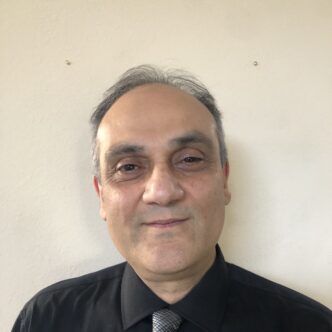Hamidreza Montazeri, Pharm D, PhD

Peptide/Lipid-Associated Nucleic Acids (PLANAs) for In Vivo Delivery of Nucleic Acids
Summary
The full potential of RNA interference via small interfering RNA (siRNA) is yet to be realized due to challenges involved in efficient delivery of siRNA, which are also faced for delivering CRISPR/CAS9. This project will provide an efficient delivery system for nucleic acids to be used for investigational and therapeutic purposes. A library of lipid modified cationic peptides has been created that form complexes with nucleic acids via inter-ionic interaction. The preliminary data show effective cellular internalization of siRNA. The hypothesis for this project is that these peptides can be incorporated into a multicomponent nucleic acid delivery system, called Peptide/Lipid-Associated Nucleic Acid (PLANA). The immediate aim of this project is to optimize PLANAs for efficient and safe in vivo siRNA delivery. The long-term objective is to use this approach for targeted delivery to cancer cells to silence proteins involved in tumor growth. In the designed study, the PLANAs would be modified for targeted delivery to evaluate the in vivo efficiency in a tumor bearing animal model. Development of a reliable siRNA carrier affords researchers the opportunity to explore new possibilities by silencing virtually any protein for exploratory research or therapeutic purposes. With the multicomponent nature of PLANAs, small adjustments could create carriers tailored for delivering different nucleic acids.
As a newly independent researcher, the PhRMA Foundation Research Starter Grant in Pharmaceutics made a world of difference in my career path. It enabled me to work on a project that could play a crucial role in the enhancement of my academic career. I have been working on nucleic acid delivery since 2009, and the nanoparticles evaluated in this study can change the trajectory of my research career, since it afforded us the opportunity to deliver siRNA safely and efficiently into the targeted cells. I cannot thank the PhRMA Foundation enough for believing in me and this project.